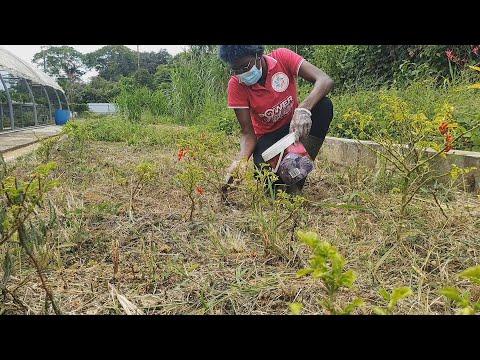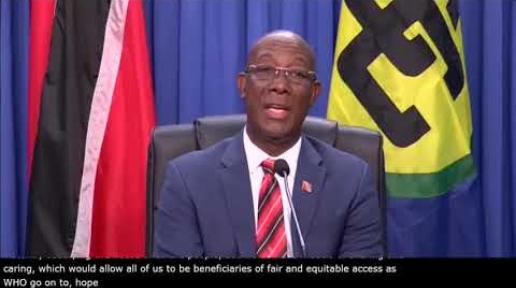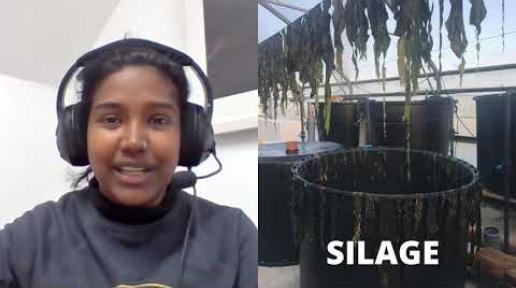Video
11 July 2022
Cashew Gardens Creates 'Black Gold' Through Composting
It's a sunny midweek afternoon in Cashew Gardens where Jennifer Roberts is working diligently in her kitchen to prepare lunch. She peels a stiff green fig and places it in her blender. The peel is all that's left, but instead of throwing it into the bin, she sets aside this refuse for another purpose.
When she’s done cooking, Jennifer places the peel inside an old paint bucket where it becomes part of a collection of food scraps. These scraps are collected weekly by volunteers from the Cashew Gardens Community Council and dumped into a compost heap to be transformed into 'black gold' - organic fertilizer. Crops in the council’s community garden are nourished with the organic fertilizer, and the produce is then sold to the community – a full circular economy that makes productive use of waste.
The programme thrives on donations of food scraps from residents of Cashew Gardens, making each household’s contribution important.
“Just knowing what I'm doing is giving back to the community is marvelous,” Jennifer explained. “I am proud, firstly to be a part of a community that embarked on such a wonderful programme and secondly, when I get produce from them (the council), it tastes good. You are happy that you know you're part of something good.”
The Cashew Gardens Community Council’s composting initiative was funded by the Global Environment Facility Small Grants Programme (GEF SGP), which provides financial and technical support to local civil society and community-based organizations to develop and implement local actions that address global environmental issues, improve livelihoods and reduce poverty.
Every week, a bright green truck donated by GEF SGP makes a trip around the community to collect buckets of food scraps from participating residents. Out of the vehicle steps Bernadine Paris, a Cashew Gardens Community Compost Programme volunteer. After a polite exchange of words with Jenny, Bernadine collects Jenny's compost bucket and places it in the truck alongside those from other residents.
It's a job she’s been doing for two years, since the programme began in August 2020.
"Our motivation stems from us having a climate-smart garden and recycling system,” Bernadine said.” The compost initiative synergized and enhanced our existing projects. It also helps eliminate waste going into landfills, reducing the harmful methane gases released by decomposition. We want to create a zero-waste economy. Cashew Gardens is the model for other communities to replicate, to help build a more sustainable Trinidad and Tobago."
The Cashew Gardens Compost Initiative has been a resounding success. Since its inception, more than 1000 kilograms of organic waste have been diverted from landfills and converted to organic fertilizer. The programme has massively boosted the number of Cashew Gardens residents who recycle and compost. 80% of respondents from a community survey done in 2021 said that they compost and recycle, a vast increase from the 8% recorded in 2017.
Sustainable communities start with the actions of a few. Cashew Gardens has provided a model for other communities to defend against climate change. Every little bit helps in the fight to protect our environment.
Video & Story by Keval Marimuthu













